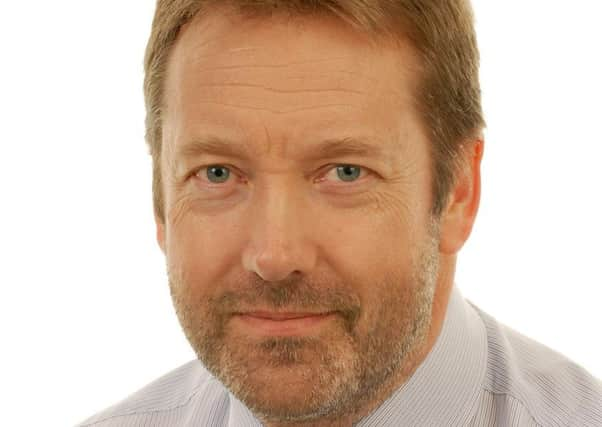Prof Colin Campbell: Keeping Scotland at the forefront of scientific thought


Scotland has a proud history of leadership in science stemming from the early Enlightenment period when people like James Hutton, David Hume, Adam Smith and James Watt led the world in intellectual and scientific accomplishments. Indeed, in Hutton’s case, he completely changed our perception and understanding of the world for ever. When he published his Theory of the Earth in 1788, he demonstrated through the concept of deep time that the age of our world was incalculably old.
For the James Hutton Institute, he was an inspirational figure, his work spanning subject and science areas, challenging conventional wisdom, disrupting our perceptions and provoking innovative thinking.
Advertisement
Hide AdAdvertisement
Hide AdThe James Hutton Institute is working on finding innovative solutions to the everyday problems facing our natural world, our agriculture and our land. There is great hope in science and innovation, and we are developing innovative ways to develop crop varieties, discovering better ways of managing our soils, water and biodiversity, as well as understanding how social innovations can help equitably address problems.
However, history suggests that in addition to addressing our current “known” problems, there is a need to ensure we are constantly improving our basic data and understanding, so we also address the “known unknowns”. For example, when we started to quantify peat in Scotland in the 1930s it was to ascertain how much of it we might convert to agriculture, burn in power stations and how quickly we could harvest it. Today we use the same data to estimate how peat locks up carbon, mitigates flooding and supports biodiversity and we are investing in how best to protect and restore it.
Likewise, our climate is changing, and this is resulting in new levels of risk and uncertainty in many areas of our economy, not least for agriculture. However, climate change may also provide new opportunities to grow different crops including crops for new uses (eg plant protein). In other words, the questions may change, but the need for science capacity to address them has not.
While financial and other services have become the predominant sectors of employment and wealth circulation, our economic reliance on natural resources is increasingly clear as are the benefits from a wellbeing perspective. We urgently need ways of better valuing our natural assets that don’t allow them to be exhausted.
A new approach to development is especially needed when thinking about the future of our often-overlooked farming and forestry sectors. We often fail to recognise the role the land-based sectors play in underpinning the wider economy. Farmers, foresters and land managers have a critical role in preserving and potentially growing our collective natural capital and, with Brexit especially, there are new opportunities to look at how we support the land-based sectors differently.
A new economic approach that incorporates Natural Capital is one way of getting to grips with the long-term sustainability challenges. Such an approach is dependent not just on protecting our natural assets but on growing our natural capital (soil, water, biodiversity). The need for new thinking will soon be presented by world expert Professor Tim Jackson in the 40th TB Macaulay Lecture in Edinburgh at Our Dynamic Earth on 4 October .
Scotland is fortunate in having world leading science and institutions working in this area, and their work will be well represented at the forthcoming World Forum for Natural Capital in Edinburgh on 27-28 November. SEFARI is the new name for the Scottish Environment, Food and Agriculture Research Institutes a collective of institutes working to better not just Scotland’s agriculture and environment but also to tackle similar problems at a global level. We work internationally, bringing the world’s ideas to Scotland as well as taking our leading ideas to them.
While we need to face up to short term needs and disruption we will be better served by taking a long-term perspective and looking for the leading ideas.
Advertisement
Hide AdAdvertisement
Hide AdProfessor Colin Campbell is chief executive of the James Hutton Institute, a world-leading research organisation delivering fundamental and applied science to drive the sustainable use of land and natural resources. See www.hutton.ac.uk for more information